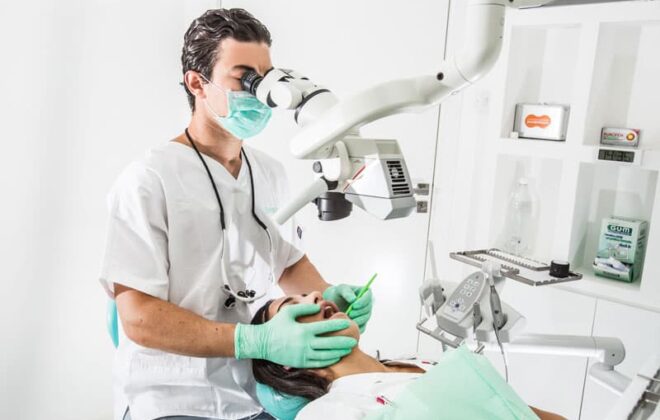AAE Statement on COVID-19
Knowing where to go for tooth pain or infected teeth during a pandemic can not only save your teeth, but your life and the lives of those in your community.
As the COVID-19 pandemic continues to evolve, we want you to know that most endodontists’ offices are open for dental emergencies. Endodontists are trained to treat urgent dental emergencies related to tooth pain and infection and have the necessary resources and equipment for saving your teeth.
If you have a dental emergency that requires urgent care, seek an endodontist first, not the emergency room or local urgent care. Hospitals have become the front line for COVID-19 infections and are currently experiencing surges of patients seeking care.
Avoiding the emergency room and urgent care for dental emergencies helps free up hospitals to treat patients with COVID-19 and prevents over-burdening the health system. If you are experiencing severe dental pain, dental infection symptoms (e.g. bleeding, swelling) or a dental infection-related fever, please contact your endodontist immediately or go to findmyendodontist.com to find a local endodontist.
Patients should know that practicing dentists (all specialties), dental auxiliaries and dental laboratories currently apply infection control procedures as described by the Centers for Disease Control and Prevention (CDC) and the American Dental Association. These include use of the rubber dam, proper masks and high evacuation suction. Along with the standard safety and sterilization precautions regularly implemented, dental offices are taking additional prevention steps including:
- Screening patients for travel history
- Monitoring patients for signs and symptoms of infections
- Having patients fill out a COVID-19 screening questionnaire
- Having all staff, patients, family members wash their hands or use hand sanitizer upon arrival
- Implementing full contact and respiratory precautions by using gowns, gloves, face shield protection, and goggles
- Implementing safe work practices including keeping hands away from face, limiting surfaces touches, changing gloves when torn or heavily contaminated, and performing hand hygiene.
- Frequently cleaning and disinfecting public areas, including door handles, bathrooms, chairs and front desks
- Increased access to teledentistry
- Limiting patient to patient contact by implementing strict social distancing protocols like having patients wait in their vehicles while waiting to be seen.
The health and safety of our patients, endodontists and staff remains our number one priority. Oral health can have a strong effect on overall health, so it is important to continue practicing active and appropriate oral hygiene. Please consider the following tips to continuing maintaining your oral health and preventing the chance for infection:
- Wash your hands BEFORE and AFTER brushing and flossing
- Brush twice a day and remember to clean your tongue
- Keep your toothbrush clean by rinsing your toothbrush with water after brushing and storing in an upright position so it air-dries
- Use mouthwash containing fluoride
We will continue to adapt our approach as needed as the situation evolves and additional government guidance is issued.
Please refer to the CDC’s COVID-19 webpage for information about the coronavirus disease. To learn more about the AAE’s efforts to help inform patients and endodontists about COVID-19, please visit its dedicated page: aae.org/covid.



